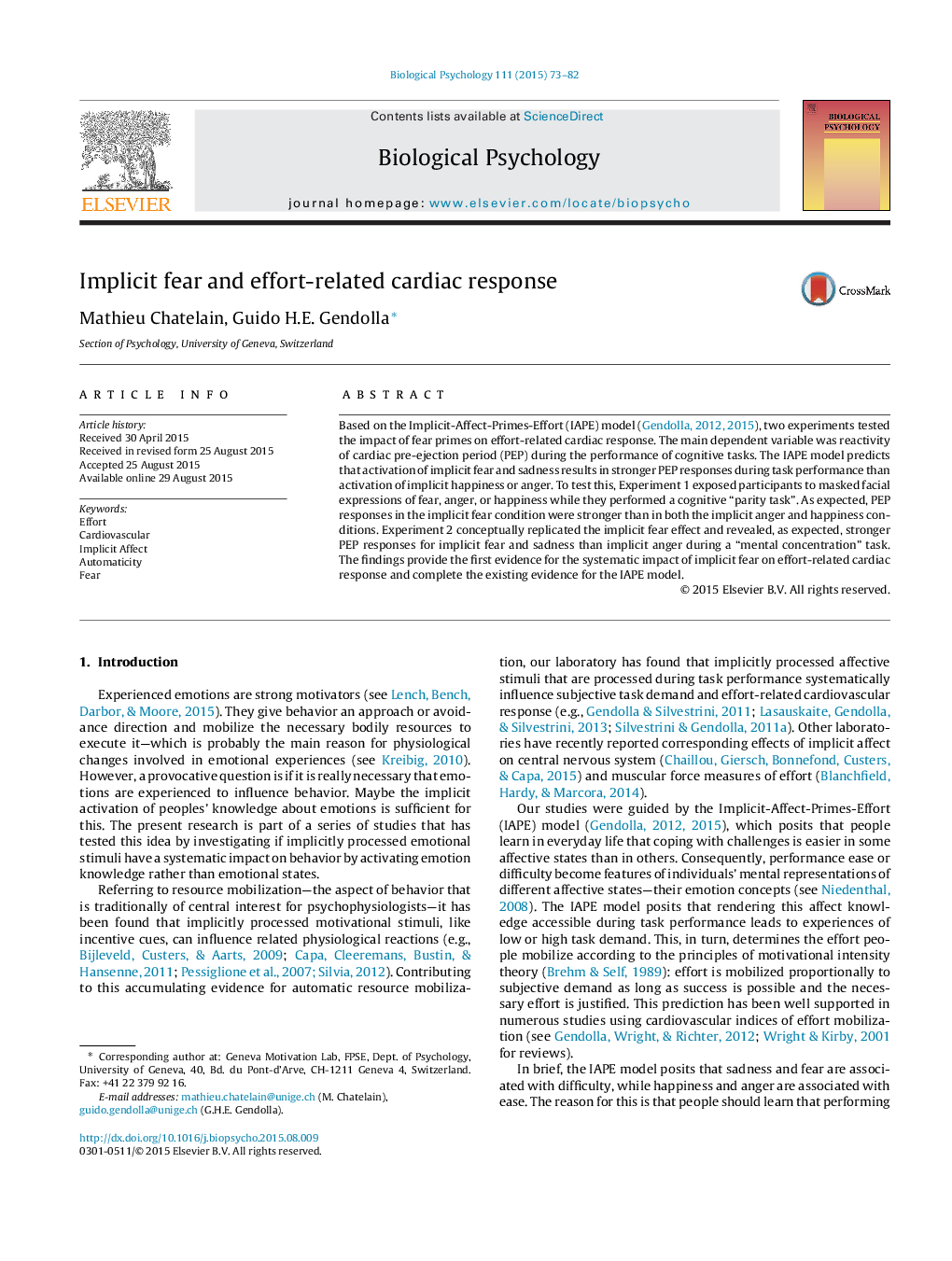| Article ID | Journal | Published Year | Pages | File Type |
|---|---|---|---|---|
| 7278545 | Biological Psychology | 2015 | 10 Pages |
Abstract
Based on the Implicit-Affect-Primes-Effort (IAPE) model (Gendolla, 2012, Gendolla, 2015), two experiments tested the impact of fear primes on effort-related cardiac response. The main dependent variable was reactivity of cardiac pre-ejection period (PEP) during the performance of cognitive tasks. The IAPE model predicts that activation of implicit fear and sadness results in stronger PEP responses during task performance than activation of implicit happiness or anger. To test this, Experiment 1 exposed participants to masked facial expressions of fear, anger, or happiness while they performed a cognitive “parity task”. As expected, PEP responses in the implicit fear condition were stronger than in both the implicit anger and happiness conditions. Experiment 2 conceptually replicated the implicit fear effect and revealed, as expected, stronger PEP responses for implicit fear and sadness than implicit anger during a “mental concentration” task. The findings provide the first evidence for the systematic impact of implicit fear on effort-related cardiac response and complete the existing evidence for the IAPE model.
Related Topics
Life Sciences
Neuroscience
Behavioral Neuroscience
Authors
Mathieu Chatelain, Guido H.E. Gendolla,
